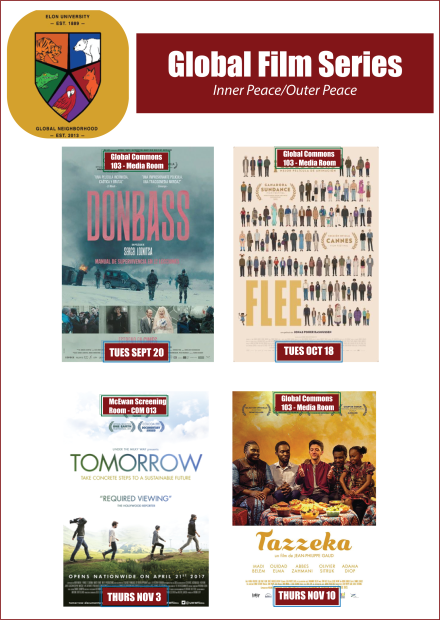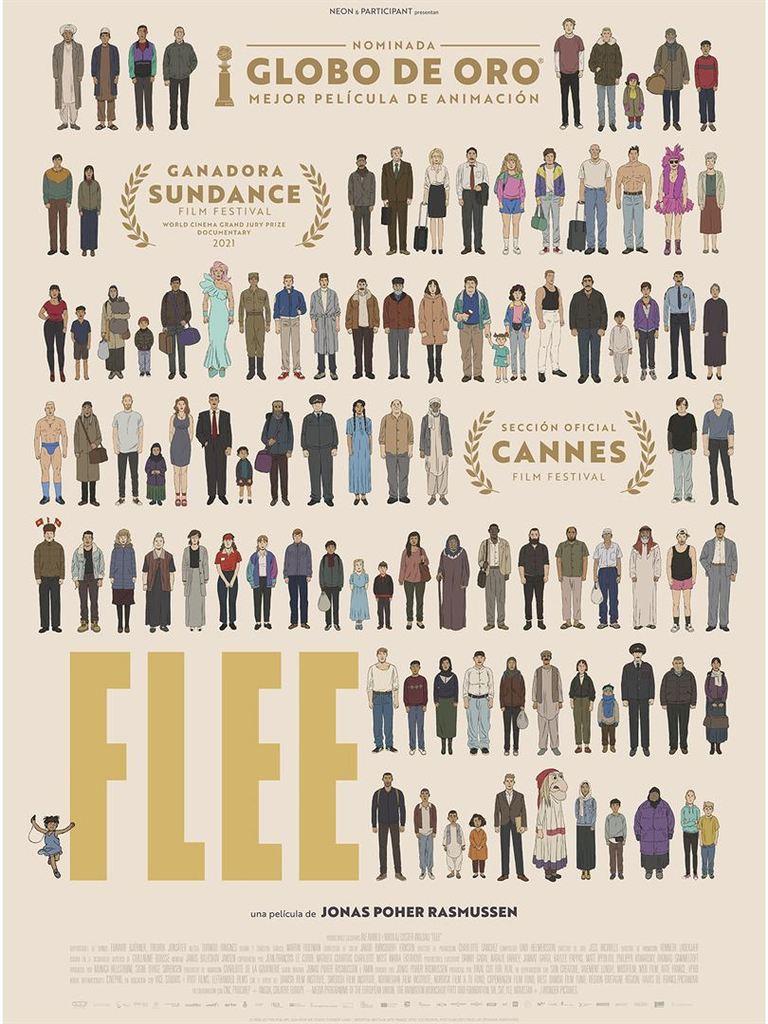The Global Neighborhood continued its Global Film Series with a screening of a film called "Flee," an animated documentary telling the true story about Amin, an Afghan migrant in Denmark, who must confront his past to truly have a future.
The Global Neighborhood continued its Global Film Series with a screening of a film called “Flee,” an animated documentary telling the true story of Amin, an Afghan migrant in Denmark, who must confront his past to truly have a future.
Assistant Professor of English Dan Burns introduced the film and the guest discussant, Kai Swanson, assistant professor of Cinema and Television Arts. Swanson leads a Winter Term course to the Sundance Film Festival and attended the prestigious film festival and awards ceremony virtually the year that “Flee” won the Grand Jury Prize in the World Cinema Documentary. The commentary provided by Burns and Swanson contributed to a rich discussion and deeper understanding of the film.

This film focuses on Amin and his family, Afghan refugees who escaped the oppressive regime of the Mujahideen. As the Mujahideen grew more powerful during the First Afghan Civil War of the 1980s and 1990s, Afghanistan fell into a war. Amin’s father was taken by the Mujahideen and was never heard of again, and the government were also drafting young boys to join the military to fight in the war. After a series of unfortunate events, his mother decided to flee to Russia for a better life with the help of his brother who lives in Sweden.
The family lived illegally in Russia on an expired tourist visa. They were waiting for Amin’s brother who lives in Sweden to fund them to go to Europe. His family was not allowed to go out because they could be caught and sent back home anytime. Amin and his sibling spent their teenage years confined in the apartment. Amin’s brothers then managed to save enough money to not only support his family living in Russia but to smuggle everyone to Europe one by one. Their journey to Europe wasn’t pleasant because they have to traveled in crowded cargo ship with the risk of being caught and returned back to Russia or even Afghanistan.
Amin traveled didn’t end up in Sweden with his family because his plane landed in Denmark. When asked by the authority, he had to lie that he has no family and that he was there all by himself. The Danish authority helped Amin find a place to live and learn. He was later reunited with his family who are all in Sweden. Amin can never really tell anyone about his family for the fear that he and his family will all be deported.
At the point of the documentary, Amin was living with his boyfriend Kasper. Because of his trauma, Amin build a wall around himself. In order for him to come to terms with trauma and sexuality, Amin needs to open up and discuss his story in a safe space. This animated documentary is a safe space for Amin to share his story anonymously and let people who what he has been through.
Flee reveals a number of bleak truths about the gap between the “first” and “third” worlds. The film shows about the desperate measures people will risk for the chance at a better life in another country. This animated documentary is a powerful tool to share stories about the struggles of refugees who risked everything in their home country to find a safe haven.
The Global Film Series features movies from around the world focused on the theme of “inner peace/outer peace.” For the September showing, the Global Neighborhood welcomed students and faculty to watch a screening of “Donbass,” a film taking place in a war-torn Eastern Ukraine.
The next film that the Global Neighborhood will be showing in the Global Film Series is “Tomorrow (Demain).” This film is a French documentary that focuses on the potential solutions and actions to combat climate change.
The final film of fall semester will be “Tazzeka,” directed by Jean-Philippe Gaud. This film is about Elias, an aspiring chef from the Moroccan village of Tazzeka, who brings the traditional cuisine he learned from his grandmother to Paris. The film be followed by a discussion and a tasting of authentic, homemade Moroccan couscous.
If interested, “Tomorrow” will be aired in the McEwen Screen Room (COM 013) on Thursday, Nov. 3 at 7 p.m., and “Tazzeka” will be aired in Global Commons 103 Media Room on Thursday, Nov. 10 at 7 p.m. Come out and join for a film!



